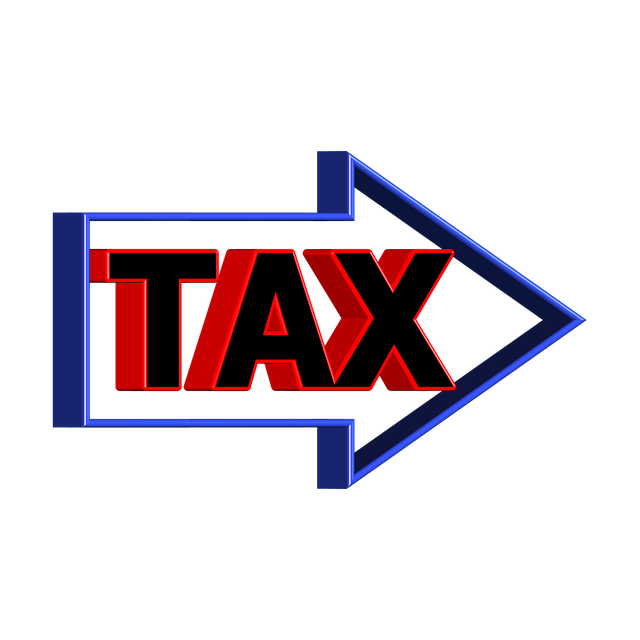Proactive tax planning is a powerful tool for individuals and businesses aiming to preserve and grow wealth. By strategically navigating tax laws, taxpayers can unlock significant financial advantages. This article guides you through essential strategies, from tax benefits for entrepreneurs to year-end tax planning. Learn how to maximize tax deductions and explore tax-deferred investments to boost profitability. Additionally, discover expert tips on retirement tax planning and tax minimization techniques tailored for business owners.
- Tax Benefits for Entrepreneurs: Strategizing for Wealth Preservation
- Year-End Tax Planning: Maximizing Deductions and Efficiency
- Retirement Tax Planning & Tax Minimization Techniques for Business Owners
Tax Benefits for Entrepreneurs: Strategizing for Wealth Preservation

Entrepreneurs have unique opportunities to maximize tax benefits and preserve their wealth through strategic financial planning. Year-end tax planning is crucial, offering a chance to optimize deductions for expenses incurred throughout the year. By carefully documenting business costs, from office supplies to travel expenses, entrepreneurs can claim legitimate deductions that lower their taxable income. Additionally, exploring tax-deferred investments, such as retirement accounts designed specifically for self-employed individuals, allows for significant savings on taxes while also securing future financial security.
Strategizing for wealth preservation goes beyond year-end planning. Proactive entrepreneurs consider long-term goals like retirement and implement tax minimization techniques accordingly. This might include utilizing tax-efficient investment vehicles like index funds or real estate, which can offer both growth and potential tax advantages. Retirement tax planning, when incorporated early, ensures that entrepreneurs can enjoy their hard-earned savings without facing unnecessary tax burdens as they age.
Year-End Tax Planning: Maximizing Deductions and Efficiency

Year-end tax planning is a crucial strategy for entrepreneurs to maximize tax deductions and efficiency. As the fiscal year comes to a close, business owners have an opportunity to review their financial decisions and implement strategies that can reduce their tax burden. This includes taking advantage of legitimate business expenses, such as office supplies, travel costs, and equipment purchases, which can all be claimed as deductions. By keeping detailed records and consulting with a tax professional, entrepreneurs can ensure they are maximizing their tax benefits for entrepreneurs while staying compliant with regulations.
Additionally, year-end planning offers a chance to consider tax-deferred investments, which can help in retirement tax planning. Strategies like contributing to retirement accounts, such as 401(k)s or IRAs, can reduce taxable income and defer taxes on investment gains until retirement. This proactive approach to tax minimization techniques not only benefits the business’s current financial health but also sets entrepreneurs up for long-term wealth preservation.
Retirement Tax Planning & Tax Minimization Techniques for Business Owners

For business owners looking to preserve their financial health and secure their retirement, proactive tax planning is key. By incorporating tax-efficient strategies early on, entrepreneurs can significantly reduce their tax burden and maximize their earnings. One effective method is to take advantage of tax benefits for entrepreneurs, such as maximizing tax deductions for business expenses and utilizing tax-deferred investments. These techniques not only lower current tax liabilities but also contribute to long-term wealth accumulation.
Year-end tax planning plays a crucial role in this process. Business owners should stay ahead of deadlines by reviewing their financial records and identifying areas where they can optimize their taxes. This includes strategically timing capital gains or losses, taking advantage of retirement tax planning options like 401(k)s or IRAs, and exploring tax minimization techniques tailored to their specific business structure. Such proactive measures ensure compliance while maximizing the tax benefits available to entrepreneurs.
Proactive tax optimization is a powerful tool for individuals and businesses seeking financial wellness. By strategically incorporating tax-efficient strategies throughout the year, from maximizing deductions during year-end planning to exploring tax-deferred investments, you can significantly reduce your tax burden. For entrepreneurs, this means preserving wealth, improving business profitability, and ensuring compliance. Retirement tax planning further enhances long-term financial security through targeted minimization techniques. Embrace these practices for a brighter financial future.



